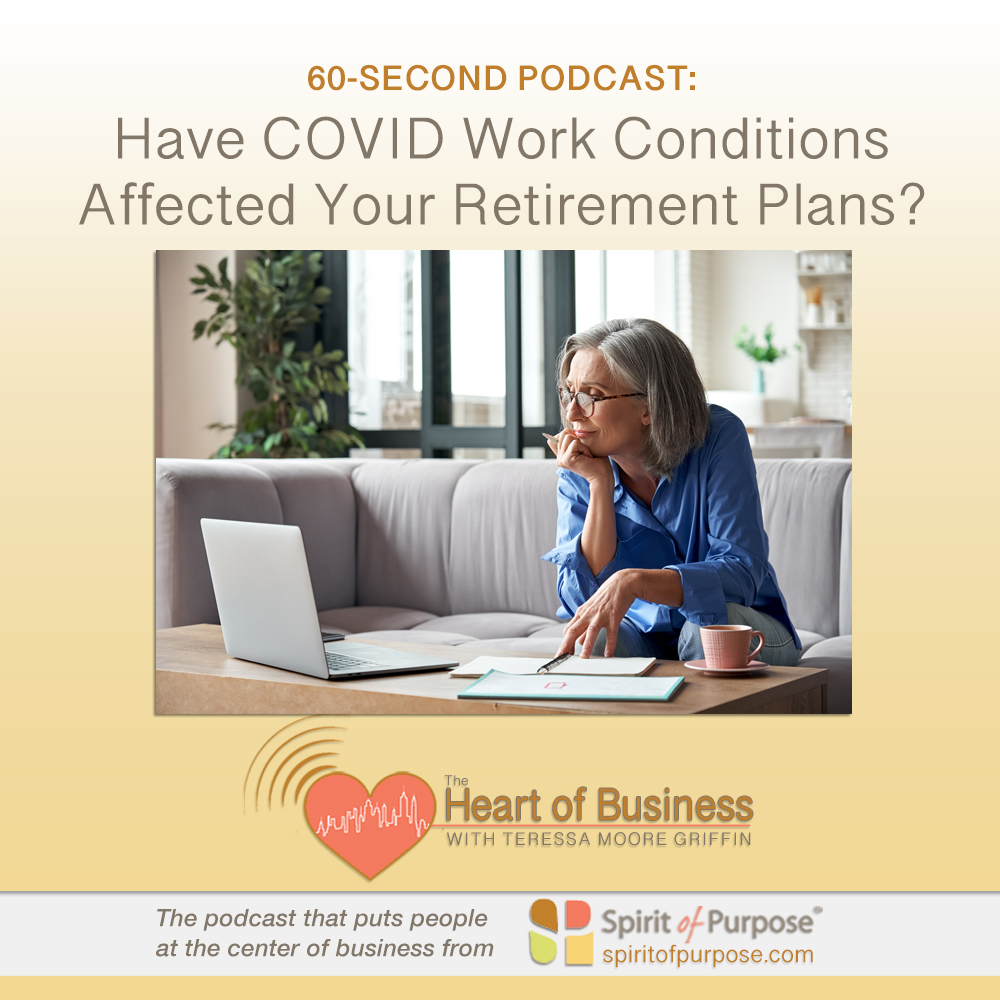PODCAST: Is COVID Making You Rethink Retirement?
In very significant ways, the past year has changed the way we work. If you’re among the crowd approaching traditional retirement age – 60 to 65-ish – how have the shifts affected your sense of relevance, work-life balance, and plans to retire?
Despite the challenges involved in adjusting to digitization, as well as heightened expectations of 24/7 accessibility, staying engaged in work they love, doing it from the comfort of home, all absent the burden of a tough daily commute or added complexity of rigorous business travel, some companies may notice a growing number of executives interested in delaying retirement.
How might such an emerging pattern impact your organization and shape discussions of talent development and succession?


